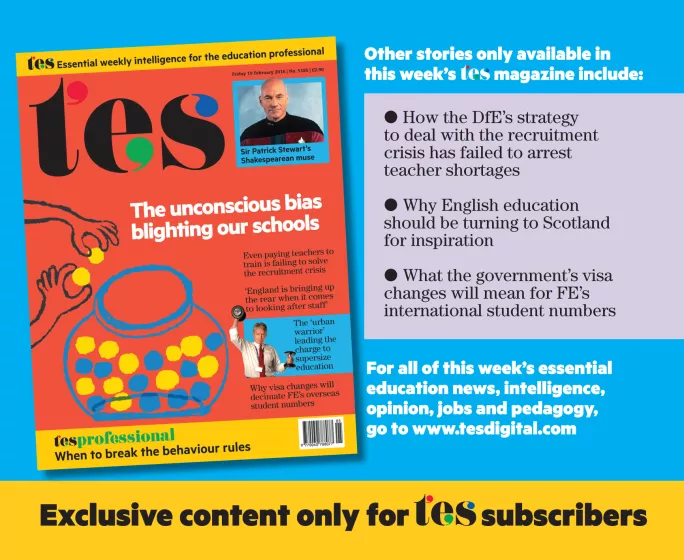- Home
- SEND focus: It’s good to be different
SEND focus: It’s good to be different

Differentiation gets a lot of stick. Spouting from Twitter on any given evening are comments such as “It’s a dark art”; “it’s a waste of time”; “it holds children back”; “it lowers expectations”. If you believe the hype, it’s one Big Old Bad Guy.
I don’t like layered targets; the “must”, “could”, “should” statements, up on the wall for all to see with children’s names and faces attached. They give me the shivers. But if you’re going to make a success of teaching in any kind of classroom you care to mention, then differentiate you must.
I mean, we do it naturally already. Who doesn’t adjust what they are doing in the classroom every moment of every day to respond to the needs of the class in front of them? You treat a child differently because their gran died at the weekend, or you use particular language with another because you know they don’t speak English as their first language. Differentiating is what teachers do.
Oh, I do understand the lure of the set. The claim that setting is not differentiation (it is), that you will only have to teach one lesson - thus prepare one set of resources - and that everyone will be moving along the Knowledge Road in the same direction and at the same time, is a powerful one. If they aren’t getting on in our class we can send them to another where they can be someone else’s problem.
Overburdened as we are by the job itself, let alone all the added extras, we are keen for ways to make our lives easier. And I understand the tyranny of a million different worksheets, the pieces of paper that fill up your folders and scatter to the floor or blow around the playground in the wind and rain; of having them ready for one class and not the next. I understand that differentiation done badly is bad for everyone. But that doesn’t mean that we shouldn’t do it at all.
It doesn’t mean that we should stop thinking about all the different ways that we can challenge children to learn at a pace that suits them; not too fast (confusing) and not too slow (boring). It doesn’t mean that we should avoid emphasising personal targets in PE, or providing a different set of materials in art or simplifying/adding complexity to the tune in music.
Most of all, it doesn’t mean you stick your included child with a TA, send them out of the room and leave it at that. You take away differentiation and you take away a child’s ability to surprise us with what we didn’t think they could do.
Nancy Gedge is a teacher at Widden Primary School in Gloucester. Her book, Inclusion for Primary School Teachers, is out in May and available to preorder on Amazon @NancyGedge
This is an article from the 19 February edition of TES. This week’s TES magazine is available in all good newsagents. To download the digital edition, Android users can click here and iOS users can click here
Want to keep up with the latest education news and opinion? Follow TES on Twitter and like TES on Facebook

Keep reading for just £1 per month
You've reached your limit of free articles this month. Subscribe for £1 per month for three months and get:
- Unlimited access to all Tes magazine content
- Exclusive subscriber-only stories
- Award-winning email newsletters



